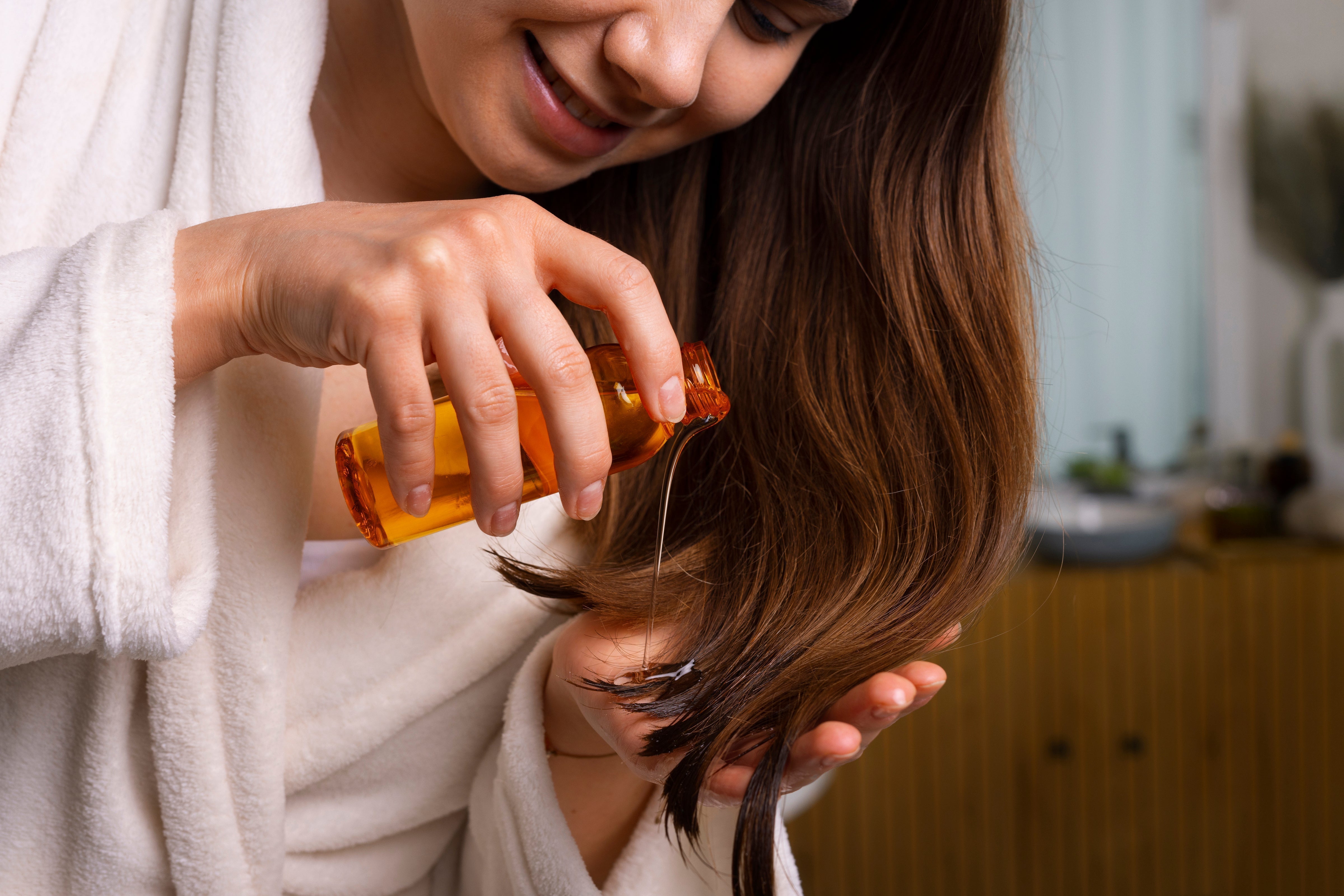As the seasons shift, so do the needs of our skin and scalp. The transition from one season to another often brings unexpected guests—dryness, irritation, and the most dreaded of them all, dandruff. Whether it's the cold winter air stealing your scalp’s moisture or the humid monsoon triggering excess oil production, seasonal changes can create the perfect environment for dandruff to thrive. But worry not! With the right Ayurvedic approach, you can keep your scalp healthy and flake-free all year round.
Understanding Seasonal Dandruff
Dandruff is primarily caused by an imbalance in the scalp’s natural oil production, coupled with fungal growth and dead skin buildup. During winter, lack of humidity can lead to an excessively dry scalp, while summer and monsoon seasons may trigger an overproduction of sebum, making the scalp greasy and prone to dandruff. Understanding how your scalp reacts to seasonal shifts is the first step to effective dandruff control.

Ayurvedic Wisdom for a Dandruff-Free Scalp
Ayurveda, the ancient science of holistic wellness, believes that a healthy scalp is a reflection of a balanced body and mind. Here’s how you can integrate Ayurvedic principles to prevent and treat dandruff naturally:
1. Oil Therapy – The Power of Scalp Nourishment
Regular oiling is the cornerstone of Ayurvedic hair care. Choose lightweight yet deeply nourishing oils like coconut oil infused with neem, tea tree, or brahmi. These herbs have antimicrobial properties that help combat dandruff while keeping your scalp hydrated. Warm the oil slightly before massaging it into your scalp for better absorption and blood circulation.

2. Herbal Cleansing – Ditch the Harsh Shampoos
Chemical-laden shampoos strip the scalp of natural oils, often worsening dandruff. Instead, opt for natural hair cleansers like reetha (soapnut), shikakai, and amla. These Ayurvedic herbs cleanse the scalp gently while maintaining its pH balance, reducing flakes and irritation.
3. DIY Anti-Dandruff Hair Masks
Pamper your scalp with weekly herbal masks to restore its health. Try this simple yet effective DIY mask:
-
1 tbsp neem powder (antibacterial and antifungal)
-
2 tbsp aloe vera gel (soothes and hydrates the scalp)
-
1 tbsp yogurt (natural probiotic that fights dandruff-causing fungi)
-
A few drops of lemon juice (helps in reducing excess oil) Apply the mixture to your scalp, leave it on for 20-30 minutes, and rinse with lukewarm water.
4. Balanced Diet for a Healthy Scalp
What you eat impacts your scalp’s health. Ayurveda recommends including foods rich in omega-3 fatty acids (found in flaxseeds and walnuts), probiotics (yogurt), and iron (leafy greens) to promote healthy hair and prevent scalp issues.
5. Stress Management – A Hidden Culprit
Stress and an unhealthy lifestyle often contribute to dandruff flare-ups. Engage in relaxation techniques like meditation, deep breathing, or yoga to reduce stress levels and maintain a healthy scalp environment.

Season-Specific Dandruff Care Tips
✅ Winter: Keep your scalp hydrated with warm oil massages and deep conditioning masks. Avoid hot water for hair washes, as it can worsen dryness.
✅ Summer: Wash your hair more frequently to remove sweat and excess oil. Use cooling herbs like hibiscus and aloe vera to soothe the scalp.
✅ Monsoon: Fungal infections are common during this season, so ensure your hair dries properly after washing. Use neem and tea tree-based products for their antifungal properties.
Final Thoughts
Dandruff may be a persistent problem, but you can tackle it naturally and effectively with the right care and Ayurvedic remedies. Instead of resorting to harsh chemical treatments, embrace the power of herbal oils, gentle cleansers, and nourishing diets to keep your scalp balanced throughout the seasons. After all, a healthy scalp is the foundation of beautiful, luscious hair!
Stay flake-free and let your hair shine, naturally! ✨




